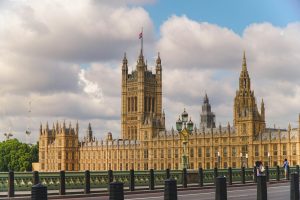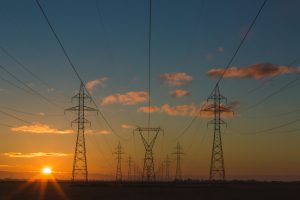The Russian invasion of Ukraine has changed the world. The ways it has done so are yet to be fully understood. Many of our post Cold War assumptions have been upended: Germany has abandoned its longstanding policy of maintaining a limited armed forces to commit €100 billion to defence spending[1]; Switzerland has departed from its historical neutrality to apply sanctions to Russia[2]; Finland is now openly discussing NATO membership[3] and things we had assumed would never happen continue to do so on a daily basis. Set against the human tragedy that is unfolding in Ukraine, these events can seem small or insignificant in comparison. Nonetheless, they are likely to have enduring consequences for everyone in Europe. Particularly when it comes to how Europe, including the UK, powers itself.
The Russian invasion of Ukraine is likely to keep energy bills high here in the UK
There has been upwards pressure on energy bills in the UK for some time. Before Russia invaded Ukraine, Ofgem had raised its domestic energy price cap by 54 per cent. This was in order to reflect the rising price of gas on global markets[4]. It is difficult to see how Russia’s attack on Ukraine will change this. In fact Russia’s war is likely to drive wholesale gas prices up.
With countries taking steps to isolate Russia, the West must meet near-term demand for power from other markets. Unless demand for power changes significantly, that means sourcing more gas from fewer places (if Western nations are successful in cutting off Russia’s economy). Logic suggests this will lead to an increase in prices in countries like the UK.
British politicians must show they have a plan to tackle rising prices
While the UK does not source gas directly from Russia, the UK is not insulated from the global wholesale price of gas. European Gas prices have surged 23 per cent since the announcement of sanctions on Russia.[5] Higher global fossil fuel prices will also feed into transport costs for goods in stores, increasing the upwards pressure on inflation.
The UK fossil fuel industry has a new opportunity
This will increase the pressure on British politicians to decouple the UK from global gas markets. There have been calls from prominent Conservative MPs, such as Steve Baker, for the UK Government to re-examine its hesitant approach to fracking.[6] Indeed, the Prime Minister recently stated: ‘There is merit, during a transitional phase, in continuing with the use of hydrocarbons in this country rather than pointlessly importing them from abroad.’[7] This may lead to new opportunities for the UK’s oil and gas industry, both onshore and offshore. Particularly, against the backdrop of the CCC stating it: ‘Has not been able to establish the net impact on global emissions of new UK oil and gas extraction.’[8]
UK renewables must align with the objective of energy independence
This may also reenergise the UK’s efforts behind renewables. Already, the UK Government has announced annual contracts for difference auctions to boost low carbon power.[9] While the Government is being increasingly supportive of nuclear. As shown with its £100 million funding for Sizewell C.[10]
It seems reasonable to expect that, as the debate about Russia continues, providers of renewable energy (as well as heat and transport fuel) will be looked at increasingly sympathetically by UK policymakers. Provided they are able to align their interests with those of the UK, in terms of becoming less dependent on sources of energy that are vulnerable to price shocks from overseas.
BREVIA CONSULTING PROVIDES STRAIGHTFORWARD POLITICAL AND COMMUNICATIONS SUPPORT TO BUSINESSES AND ORGANISATIONS
Discover how Brevia can help you and your organisation by contacting the Brevia Energy Team on 020 7091 1650 or emailing us at: contact@brevia.co.uk
[2] Reuters, 28 February 2022, link
[3] Politico, 28 February 2022, link
[4] Ofgem Press Release, 3 February 2022, link
[5] Bloomberg, 1 March 2022, link
[6] Steve Baker MP, Hansard, 24 February 2022, UIN 129125, link
[7] Boris Johnson MP, Hansard, 24 February 2022, Col.579, link
[8] CCC, Letter: Climate Compatibility of New Oil and Gas Fields, 24 February 2022, link



